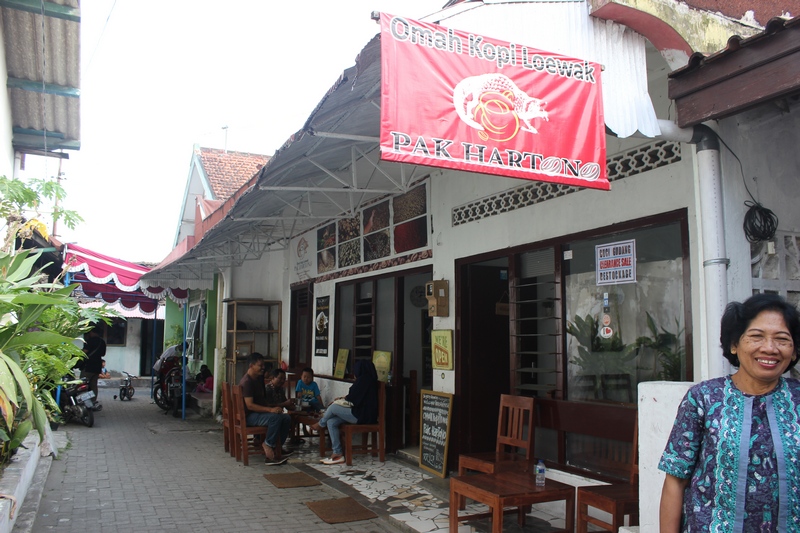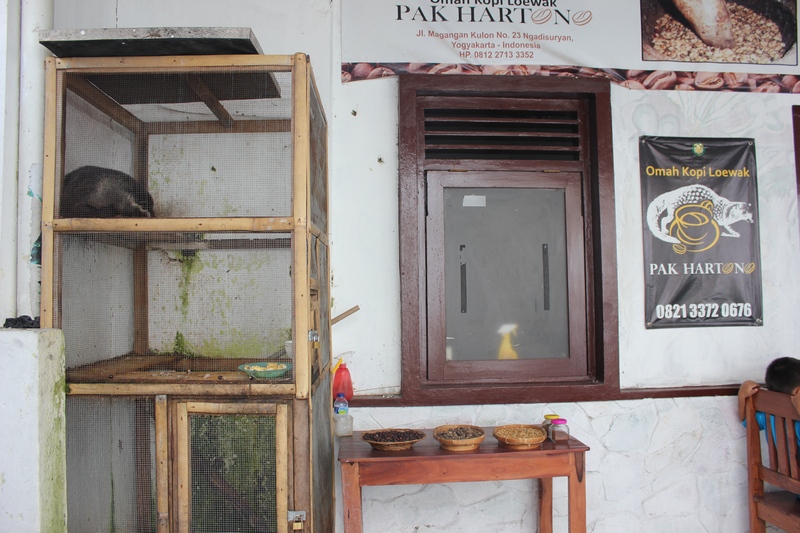 When you are traveling on the streets of Indonesia, you do not have to be great observers to see how many places sell and promote Luwak coffee, Kopi Loewak. For those who do not know the Kopi Luwak or Loewak is a type of coffee produced with berries, ingested, partially digested and defecated (yes, you have read it well) from the common palm kernel. The name comes from Indonesian Kopi, coffee, and Luwak, the local name of the palm trees.
When you are traveling on the streets of Indonesia, you do not have to be great observers to see how many places sell and promote Luwak coffee, Kopi Loewak. For those who do not know the Kopi Luwak or Loewak is a type of coffee produced with berries, ingested, partially digested and defecated (yes, you have read it well) from the common palm kernel. The name comes from Indonesian Kopi, coffee, and Luwak, the local name of the palm trees.
The berries are for this animal, an integral part of its diet but unlike the other things it cries, coffee berries are not digested and the passage into the animal bowl makes Kopi Luwak, a coffee with less perception of bitter taste and an aftertaste of chocolate and wild. According to many critics, the Kopi Luwak has no particular feature, if not one: the interest towards it is due to the price and the production method. The
Kopi Luwak is one of the rarest and most expensive cafes in the world!
Now, I will not dwell on the stupidity of the man who decides to buy this coffee not so much because of its organoleptic quality, but rather because it is a status.
How much this market represents for animals. I had already heard about this coffee, having signed petitions on it, so, unfortunately, I was already aware of what was hiding behind the production of this expensive coffee.
But if traveling is a way to discover the wonders of the world, it is also a way to see with your own eyes what wonder is not, indeed, are real catastrophes.
With the diffusion of Kopi Luwak, there are increasing concerns about the conditions of the animals caught and used for coffee production. Initially, coffee seeds were harvested from wild animal excrements, but the unusual production process and rarity prompted a price increase, and this prompted South East Asia to raise intensive cattle breeding cages battery and fed by force. The conditions of these animals are poor, closed in tiny cages alone and with a poor diet.
The thing that surprised me is that some Indonesians are completely unaware of what’s happening in their country. I was walking along the streets of Yogyakarta with my host when a lady invited me to taste that coffee, and as much as I love trying new things, I have categorically refused and I took a photo to document what I had seen.
 My friend did not understand the reason and I told him about the situation of the exploitation of the bullshit: he was completely shocked, especially since his father when he was little was an absolutely sustainable producer of that cafe, his childhood she remembered these free bites of wandering where they wanted, and in fact the revenues were not as high as now, because the precious coffee had not yet reached such a strong global interest.
My friend did not understand the reason and I told him about the situation of the exploitation of the bullshit: he was completely shocked, especially since his father when he was little was an absolutely sustainable producer of that cafe, his childhood she remembered these free bites of wandering where they wanted, and in fact the revenues were not as high as now, because the precious coffee had not yet reached such a strong global interest.
I have once again realized how important it is to inform people, locals as tourists of what is hidden behind certain things, foods, drinks as various services.
One must not forget that as Patty Smith’s famous song “People have the power” says, people have a power. And if all together, we will join this kind of cause then perhaps things will change. If you want to do something for these animals, as well as not buying and drinking this coffee, you can sign the PETA petition on the link below:
http://action.petaasia.com/ea-action/action?ea.client.id=110&ea.campaign.id=22769